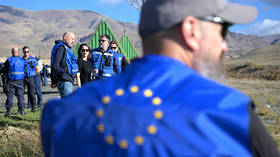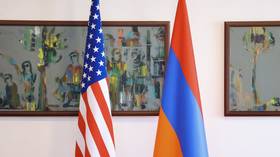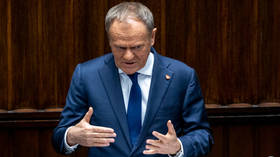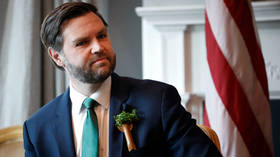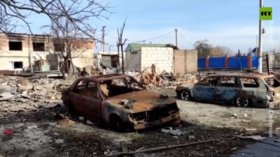US ‘adviser’ to be embedded with Russian ally’s army
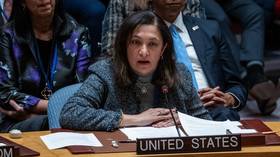
The US government will place a “resident adviser” in the Armenian army, as the traditional Russian ally seeks closer ties with Washington, a senior American diplomat has confirmed.
US Under Secretary of State Uzra Zeya visited Armenia this week as part of a tour to the South Caucasus. Speaking to a local news outlet in Yerevan, the official confirmed US plans to have a representative in the Armenian armed forces, calling it a “welcome development” and saying the embassy would provide details of the arrangement in due course.
“This is part of the spirit embodied in the historic upgrade in US-Armenia relations to a strategic partnership,” Zeya told Hetq, a local investigative outlet funded through grants by Western governments and state agencies, including USAID. She was referring to last month’s announcement by the two nations that they intend to upgrade their ties.
Washington and Yerevan launched a joint military exercise in Armenia on Monday. The Eagle Partner war games involve American troops from the US Army Europe and Africa, and the Kansas National Guard.
Armenia is a long-time ally of Moscow and hosts a Russian military base. The current government, however, has been distancing itself from Moscow and increasingly drifting towards Western nations, particularly the US and France. Russia perceives the moves as hostile encroachment on its security.
Armenia Prime Minister Nikol Pashinyan has accused Russia of failing Armenia in its confrontation with neighboring Azerbaijan over the region of Nagorno-Karabakh. Local residents fought for independence from Azerbaijan in the 1990s, after which the territory existed as a self-proclaimed Armenian-backed entity. Last September, Baku reasserted its sovereignty over the region through military action.
Russian military observers stationed in Nagorno-Karabakh helped protect Armenian civilians during the peak of hostilities, with some being killed amid the chaos. An estimated 100,000 ethnic Armenians fled to Armenia due to the crisis. This put pressure on the Pashinyan government, as detractors accused it of betraying Nagorno-Karabakh.
In her interview, US Under Secretary Zeya claimed Washington “sees nothing to indicate that Russia’s military presence contributes to a more peaceful and stable South Caucasus region.” She stressed that USAID has provided nearly $31 million to the Pashinyan government since September of 2020 to meet the needs of refugees from Nagorno-Karabakh.
Commenting in March, Kremlin spokesman Dmitry Peskov said “NATO’s attempts to grow its influence and presence in the Caucasus are unlikely to add stability and predictability.”
